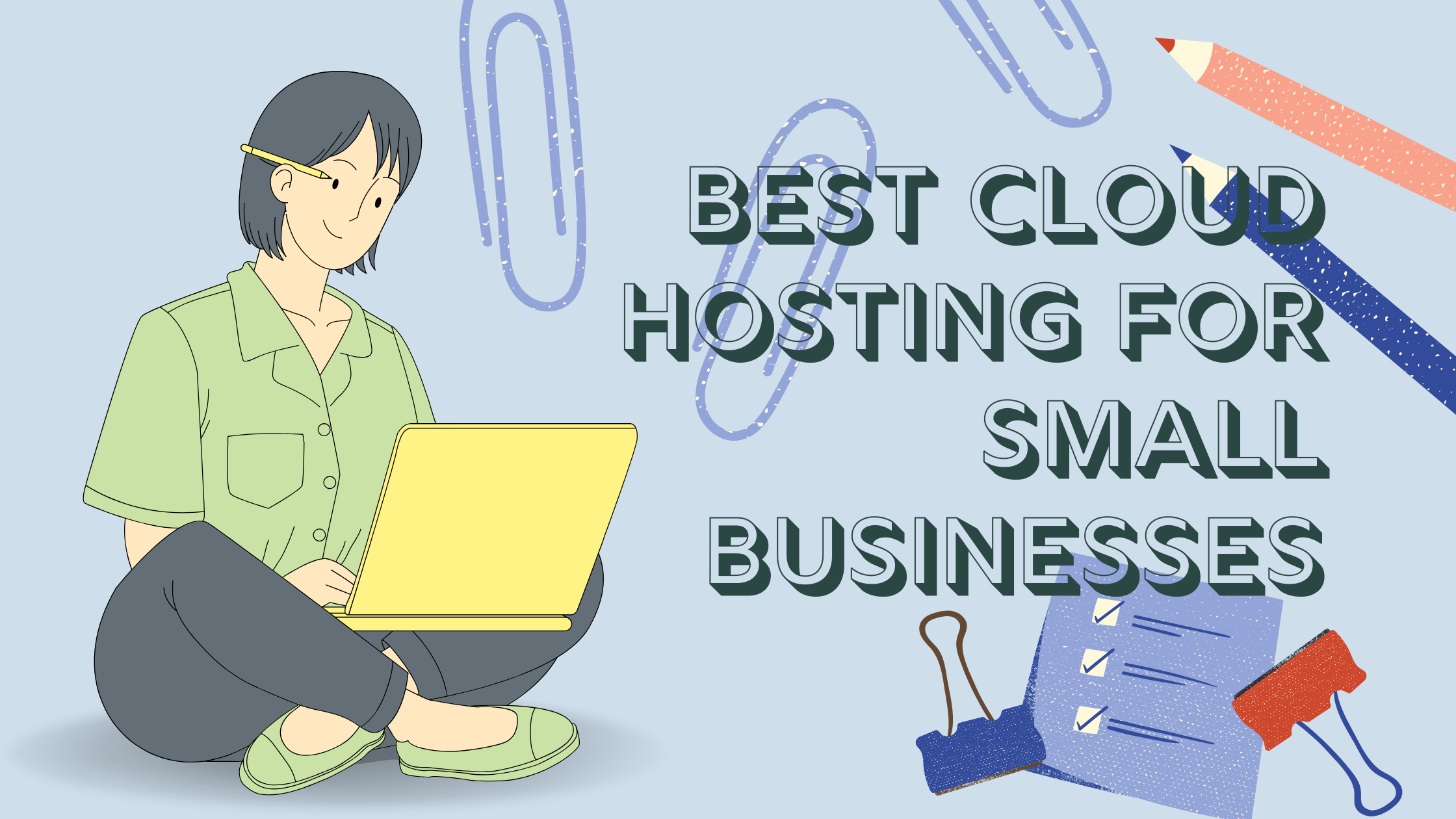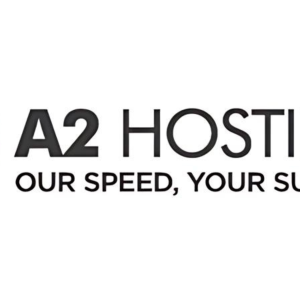
Small businesses face numerous challenges when it comes to setting up and managing their online presence. One of the most critical decisions is choosing the right cloud hosting provider. Cloud hosting offers a scalable, cost-effective solution that can grow with your business. But with so many options available, how do you know which one is the best for your needs?
What is Cloud Hosting and Why Is It Ideal for Small Businesses?
Cloud hosting refers to a type of hosting where resources (such as storage and processing power) are hosted on virtual servers, spread across multiple physical machines. This means that cloud hosting provides flexibility, scalability, and better reliability compared to traditional hosting methods.
For small businesses, cloud hosting is particularly beneficial because it allows businesses to scale their resources up or down as needed, helping them save on costs while still ensuring that their websites can handle traffic spikes or growth in user demand. Plus, cloud hosting ensures that data is securely stored in multiple locations, which means even if one server goes down, your website remains operational.
Best Cloud Hosting Providers for Small Businesses
When choosing the best cloud hosting provider for your small business, you should consider factors like pricing, performance, security features, and support. Below are some of the top cloud hosting providers that are perfect for small businesses:
- Hostinger: Hostinger offers affordable cloud hosting services, with plans starting as low as $9.99/month. They provide scalable resources, excellent uptime, and 24/7 customer support, making them a great option for small businesses.
- Affordable Plans: Starting at just $2.99/month.
- Fast Performance: Average response time of 143 ms.
- Comprehensive Support: 24/7 live chat assistance.
- Advanced Security: Unlimited free SSL certificates and DDoS protection.
- Versatile Hosting Options: Shared, cloud, VPS, and Minecraft server hosting.
- User-Friendly Website Builder: Drag-and-drop functionality with eCommerce features.
- Global Reach: Over 29 million users in 178 countries.
- 30-Day Money-Back Guarantee: Risk-free trial to experience Hostinger’s services.
- Cloudways: Cloudways offers flexible and scalable cloud hosting plans starting at just $12/month, making it an affordable yet powerful choice for small businesses. Known for its intuitive platform, Cloudways provides managed hosting services on top-tier infrastructure providers like AWS and Google Cloud. With features such as one-click scaling, automated backups, and robust security measures, Cloudways is perfect for small businesses seeking performance, reliability, and hassle-free hosting.
- Elevate your online presence with Cloudways Hosting Solutions, offering unparalleled performance and reliability.
- Benefit from lightning-fast loading times and impeccable uptime, ensuring optimal website performance.
- Simplify hosting administration with Cloudways’ user-friendly interface, streamlining your workflow.
- Scale effortlessly to accommodate your evolving needs, whether you’re a budding entrepreneur or a seasoned enterprise.
- Rest easy knowing your data is safeguarded round the clock with Cloudways’ robust security protocols.
- Experience a 40% increase in loading speed compared to traditional hosting solutions.
- Reach audiences worldwide with ease, thanks to Cloudways’ strategically located data centers.
- Bluehost: A popular name in the hosting industry, Bluehost’s cloud hosting service starts at $19.95/month. They offer strong uptime, free backups, and built-in scalability that’s perfect for small businesses looking to expand.
- Leading web hosting provider since 2003
- 99.99% uptime guarantee and high performance
- Easy-to-use dashboard and one-click WordPress installation
- 24/7 customer support via phone, chat, and email
- Free SSL certificates and advanced security features
- Affordable plans for every budget
- Trusted by over 2 million websites worldwide
- Real customer testimonials praising reliability and support
- A2 Hosting: A2 Hosting provides cloud hosting with fast load times and scalability, with pricing starting at $5/month. They are particularly known for their speed and reliability, making them an excellent choice for small business websites.
- Lightning-Fast Speed: 20x faster Turbo Servers for optimal performance.
- Reliable Uptime: 99.9% uptime guarantee ensures your site is always online.
- 24/7/365 Support: Guru Crew support available anytime you need assistance.
- Eco-Friendly: Committed to green hosting with carbon offsets.
- Versatile Plans: Offers shared, VPS, and dedicated hosting plans.
- Secure Hosting: Free SSL certificates and robust security features.
- Developer-Friendly: Supports multiple programming languages and free site migrations.
Pricing and Where to Buy Best Cloud Hosting for Small Businesses
The price of cloud hosting for small businesses can vary based on the provider and the resources you need. Most cloud hosting plans start at $5 to $20 per month, with some premium plans costing up to $100 or more per month depending on the amount of traffic and resources your site requires.
To purchase cloud hosting for your small business, simply visit the provider’s website, select the plan that best fits your business needs, and sign up. Many providers offer special deals or discounts for the first few months or a longer-term contract, so be sure to check for any offers before making a decision.
How to Optimize Cloud Hosting for Your Small Business
Once you have chosen a cloud hosting provider for your small business, there are a few things you can do to optimize your hosting setup:
- Choose the right plan: Select a plan based on your current website needs and future growth. Most providers offer scalable plans, so you can upgrade when your site expands.
- Optimize your website: Make sure your website is optimized for speed and performance, as this will improve user experience and help with SEO.
- Ensure security: Take advantage of the security features offered by your cloud hosting provider, such as SSL certificates, firewalls, and regular updates to protect your business’s data.
Cloud hosting provides the flexibility and scalability small businesses need to thrive in an increasingly digital world. By choosing the best cloud hosting provider for your needs and taking steps to optimize your setup, you can ensure that your website is ready for success.
FAQs – Cloud Hosting for Small Businesses
1. What is the difference between cloud hosting and shared hosting?
Cloud hosting and shared hosting are two distinct approaches to hosting websites:
- Cloud Hosting: Resources are distributed across multiple servers, ensuring better scalability, reliability, and uptime. If one server fails, another takes over seamlessly. It’s ideal for growing businesses that anticipate fluctuations in traffic.
- Shared Hosting: Multiple websites share the resources of a single physical server. This makes it cheaper but less reliable, as high traffic on one website can slow down others. It’s best suited for beginners or very small websites.
2. How do I determine the right cloud hosting plan for my business?
Choosing the right cloud hosting plan involves assessing your business needs:
- Website Traffic: Analyze current and expected traffic. Opt for plans with scalable resources to accommodate spikes.
- Budget: Compare plans and features to ensure affordability without compromising performance.
- Features: Look for essential features like uptime guarantees, security protocols, and customer support.
- Growth Plans: Choose a provider with flexible plans that allow you to scale resources as your business grows.
3. Is cloud hosting secure for small businesses?
Yes, cloud hosting is generally secure, but it depends on the provider and how security measures are implemented. Most cloud hosting providers offer:
- SSL Certificates: Encrypts data for secure communication.
- Firewalls: Prevent unauthorized access.
- Backups: Automated backups ensure data recovery in case of breaches or accidental data loss.
- DDoS Protection: Shields against malicious traffic.
As a business owner, you can enhance security further by enabling two-factor authentication, using strong passwords, and keeping software up to date.
4. Can I migrate my website from shared hosting to cloud hosting?
Yes, most cloud hosting providers offer migration services. Steps involved include:
- Backup: Create a backup of your website.
- Choose a Cloud Hosting Provider: Select a plan that suits your needs.
- Migration Tools: Use provider-supplied tools or manual methods to migrate files, databases, and configurations.
- Test the Website: Ensure everything is functioning properly before making it live.
Many providers offer free or paid assistance for seamless migration.
5. What are the hidden costs of cloud hosting?
While cloud hosting may seem affordable upfront, hidden costs can arise, such as:
- Data Transfer Fees: Exceeding allocated bandwidth may result in additional charges.
- Add-Ons: Extra features like advanced security, additional storage, or premium support may incur costs.
- Scaling Resources: While scalability is a benefit, frequent upgrades may increase expenses.
- Long-Term Commitments: Some providers require extended contracts for discounted pricing.
Review the pricing policy carefully before committing to a plan.
6. Can cloud hosting improve my website’s SEO?
Yes, cloud hosting can positively impact SEO through:
- Faster Load Times: Search engines prioritize websites with quick load times.
- Better Uptime: Reliable hosting ensures your website is accessible, preventing ranking penalties.
- Geographic Availability: Content delivery networks (CDNs) help deliver content faster to users worldwide.
- Scalability: Handling traffic spikes without downtime enhances user experience, a key SEO factor.
To maximize these benefits, combine cloud hosting with website optimization practices like compressing images and using caching plugins.
7. How does cloud hosting handle traffic spikes?
Cloud hosting excels at managing traffic spikes due to its flexible architecture:
- Resource Scaling: Automatically increases resources like bandwidth, storage, or processing power when demand surges.
- Load Balancing: Distributes incoming traffic across multiple servers, ensuring stable performance.
- Predictive Analytics: Some providers offer tools to anticipate spikes, allowing proactive resource allocation.
This ensures uninterrupted performance even during high-traffic events like sales or promotions.
8. Are there any compliance issues with cloud hosting for small businesses?
Compliance can be a concern depending on the industry. Ensure the cloud hosting provider complies with regulations like:
- GDPR (General Data Protection Regulation): For businesses dealing with EU customers.
- HIPAA (Health Insurance Portability and Accountability Act): For handling healthcare data.
- PCI DSS (Payment Card Industry Data Security Standard): For businesses processing online payments.
Verify provider certifications and ensure they meet industry-specific requirements.
9. How do I measure the performance of my cloud hosting provider?
To evaluate your cloud hosting provider’s performance, track:
- Uptime Percentage: Aim for 99.9% or higher uptime.
- Load Time: Use tools like Google PageSpeed Insights to measure site speed.
- Support Response Time: Test customer support for promptness and resolution effectiveness.
- Resource Utilization: Monitor CPU, RAM, and bandwidth usage via the hosting dashboard.
Regular performance reviews ensure your provider meets expectations and your business goals.
10. Can I host multiple websites on a single cloud hosting account?
Yes, most cloud hosting plans allow hosting multiple websites. Consider:
- Plan Specifications: Ensure the plan supports multiple domains and provides sufficient resources.
- Resource Allocation: Monitor usage to avoid overloading the server.
- Separate Databases: Use unique databases for each website to streamline management.
Cloud hosting’s scalability makes it easier to add more websites as your business portfolio grows.
`










